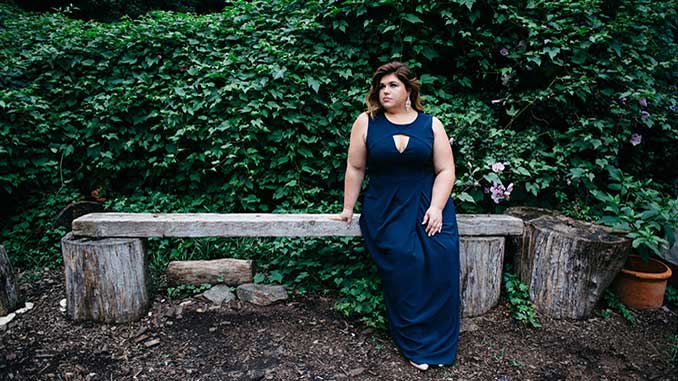 Composed with imaginative melodiousness and a mercurial spirit, Italian composer and librettist Arrigo Boito’s Mefistofele is a monumental but curiously nebulous 19th century grand opera that propagates Christian fear mongering at some of its operatic mightiest.
Composed with imaginative melodiousness and a mercurial spirit, Italian composer and librettist Arrigo Boito’s Mefistofele is a monumental but curiously nebulous 19th century grand opera that propagates Christian fear mongering at some of its operatic mightiest.
The work thankfully gives orchestra and voices ample opportunity to bejewel and surprise the senses. For that, in the first of two concert performances, Opera Australia and Orchestra Victoria delivered in spades under the assured baton of young Italian conductor Andrea Battistoni.
Commanding the stage of the State Theatre – confusing many who mistakenly turned up at Hamer Hall next door where concert opera is usually performed – renowned Italian bass Ferruccio Furlanetto, voluptuous American soprano Leah Crocetto, shining stars of Opera Australia Diego Torre and Natalie Aroyan, along with Sian Sharp and Iain Henderson, brought vocal strength and dazzling musicality to revel in.
Not to be overshadowed, the 60-strong Opera Australia Chorus and 20 “angels” of the Opera Australia Children’s Chorus worked the plentiful and soaring massed choral complexities, many with a reverential nod to Wagner, with obvious dedication and powerful results. Boito could certainly and grandiloquently create a challenging musical landscape to navigate.
Based on Goethe’s early 19th century two-part play, Faust – the titular character and protagonist of the classic German legend who makes a pact with the devil in sacrificing spiritual values for knowledge, power and excess – Mefistofele shares the same source material as the greater known and earlier premiered opera, Charles Gounod’s Faust of 1859 and Hector Berlioz’s “légende dramatique”, La Damnation de Faust of 1846. But Boito also addresses the Helen of Troy scenes from Goethe’s Part II. Taken abruptly to Ancient Greece comes as much as a surprise as the exhausting directions Boito’s music points to.
Better known for his bristling librettos penned for Giuseppe Verdi (Otello, Falstaff and the revised Simon Boccanegra) and Amilcare Ponchielli (La giaconda), Boito exhibits a sure command of orchestral writing of rich textural beauty. However, as his only completed opera, composed when just 26 years old, issues with a dramatically stiff but nonetheless poetic libretto and a concoction of schizophrenic, musical restlessness hold the work back from being truly inspiring. Structurally, in the end, this 5-act opera with prologue has the feeling of a fluid-filled balloon having difficulty in holding its shape.
When Mefistofele premiered at La Scala in 1868, it was withdrawn after just two performances. Perhaps it wasn’t easy grasping Boito’s unorthodox approach. Boito revised and reduced the opera to 4 acts and an epilogue for subsequent performances in 1875, including changing Faust from a baritone to a tenor. Despite the changes, performed for the first time in Australia, that uneasiness as a dramatic work lacking watertight appeal, overall, still feels apparent.
In the opening Prologue, Boito sets the scene immediately, a marvellous evocation magnifying the contrast between hellish and heavenly, for which Battistoni generated immense thunderous energy and wispy ethereal delicacy.
But then a chorus of Hail, Lord of the angels! and its lengthy hymn-like entrance, as glorious as it is sung, keeps one wondering when something of a plot is going to take off. Interestingly, Furlanetto, seated alone in the fore-stage, worked with the ambience, fidgeting in his place until rising to open with a splendid and mildly comic and jaunty portrayal of the devil, Mefistofele.
Furlanetto continued to give Mefistofele an appropriately affable character to tempt his prey, bringing imposing presence and appealing animated vocalism, his bewitchingly resonant and tobacco-timbre vocals flexing their expressive range generously. What wasn’t expected was the overwhelming orchestral burst in the finale in which Furlanetto struggled to rise over as Mefistofele is thwarted after Faust pleads for the Almighty’s pardon.
As the erudite Faust, top to bottom, Torre fired and forged a blistering performance, his effortless Italianate tenor sailing smoothly and passionately across the music and text. Convincingly conveying Faust’s moral pain and sensual overtures, Torre made memorable the two arias for which the great Enrico Caruso recorded in 1902, Dai campi, dai prati and Giunto sul passo estremo.
American soprano Leah Crocetto served up sumptuousness of all assortments as the victim of Faust’s seduction, Margherita, demonstrating the extraordinary pliancy of her instrument in Act 3’s L’altra notte in fondo al mare, with Margherita in a state of despair, imprisoned and condemned to death. Crocetto’s confident and elastic register shifts, beautifully tinted notes and fluttering coloratura made her appearance in Melbourne a special treat.
So too was having soprano Natalie Aroyan back who crowned her role splendidly as Elena (Helen of Troy) with her striking poise and elegant phrasing lighting up the stage. Sian Sharp and Iain Henderson filled the two remaining soloists’ parts most commendably as a radiant Marta, Margherita’s neighbour and, in homage, Faust’s pupil Wagner who Henderson brought great dignity to.
More a vehicle for Opera Australia to showcase the extraordinary talents they can draw on and offer, the two concert performances of Mefistofele, like the La Scala premiere, could be the last we see of Boito’s bombastic piece on stage for a long time.
Mefistofele
State Theatre – Arts Centre Melbourne, St Kilda Road, Melbourne
Performance: Wednesday 25 May 2022
Season continues to 27 May 2022
Information and Bookings: www.opera.org.au
Image: Leah Crocetto leads an all star cast in Mefistofele – photo by Jiyang Cheng
Review: Paul Selar
